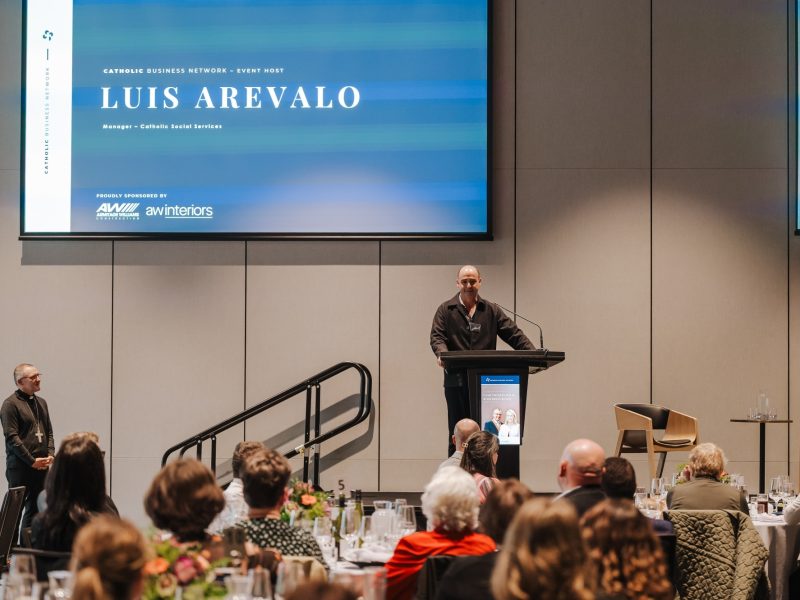A Call to Arms
by Luis Arevalo - Manager, Catholic Social Services
17 September 2023
Speaking at the Catholic Business Network (CBN) event on 27 June, Sir Brian Roche and Dame Therese Walsh were precise in their analysis when they mentioned increasing inequality in Aotearoa New Zealand was having a negative impact on our society, and that it would continue to do so if left unarrested. Their musing on this topic challenged me to ask what could be done to reverse some of the trends.
Statistics do not lie. Food poverty, inequality, homelessness, and all facets of mental health stress are increasing. We have a costof-living crisis in this country which is, in my view, unprecedented in its depth and breadth, its pace of application, and its longevity. Along with the housing crisis, both these processes are reflected in statistics which are both frightening and heartbreaking.
In Ōtautahi Christchurch, there are, on any given day, 700 tamariki (children) who are homeless (The Christchurch Press, 25 May 2023). They are without a permanent abode, which by anyone’s definition, is homelessness. What this one statistic reflects, is a tsunami of grief, pain, anxiety, and depression in these tamariki, which will stay with them for their entire lives. Society will have no ability to withstand this tsunami. Any social service professional will tell you that we cannot keep up with what is coming through our doors today, let alone in the future - unless we dramatically change our approach and urgently arrest the causes of these serious issues, reflected in such statistics.

I was given the opportunity to speak at the same CBN event about what we offer at Catholic Social Services (CSS). While I spoke, I looked out on a sea of leadership. This leadership is across sports, education, and business. However, what I saw the most was Hope. Hope that this collective, this whanau, also wanted a world where 700 tamariki had a permanent place to call home.
This is where I come to the title of this article. I lay down a wero (challenge) to us all today. If we are serious about arresting these figures, then let us hui (call a meeting) of leaders, organisations, and educators, where we can collectively start looking at creating and implementing programmes of work which are sustainable and from the bottom up. Programmes which are no longer point solutions to generational problems, but programmes where the outcomes are those of the community we profess to love.
Through the process of Participatory Social Services, we at CSS understand that it takes an entire village to create the society we all want; a society where all, not just a select few, prosper; a society different to the one Sir Brian Roche and Dame Therese Walsh quite rightly illuminated us on, that day back in June. I look forward to hearing from you, so we can start the work.
